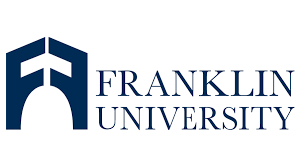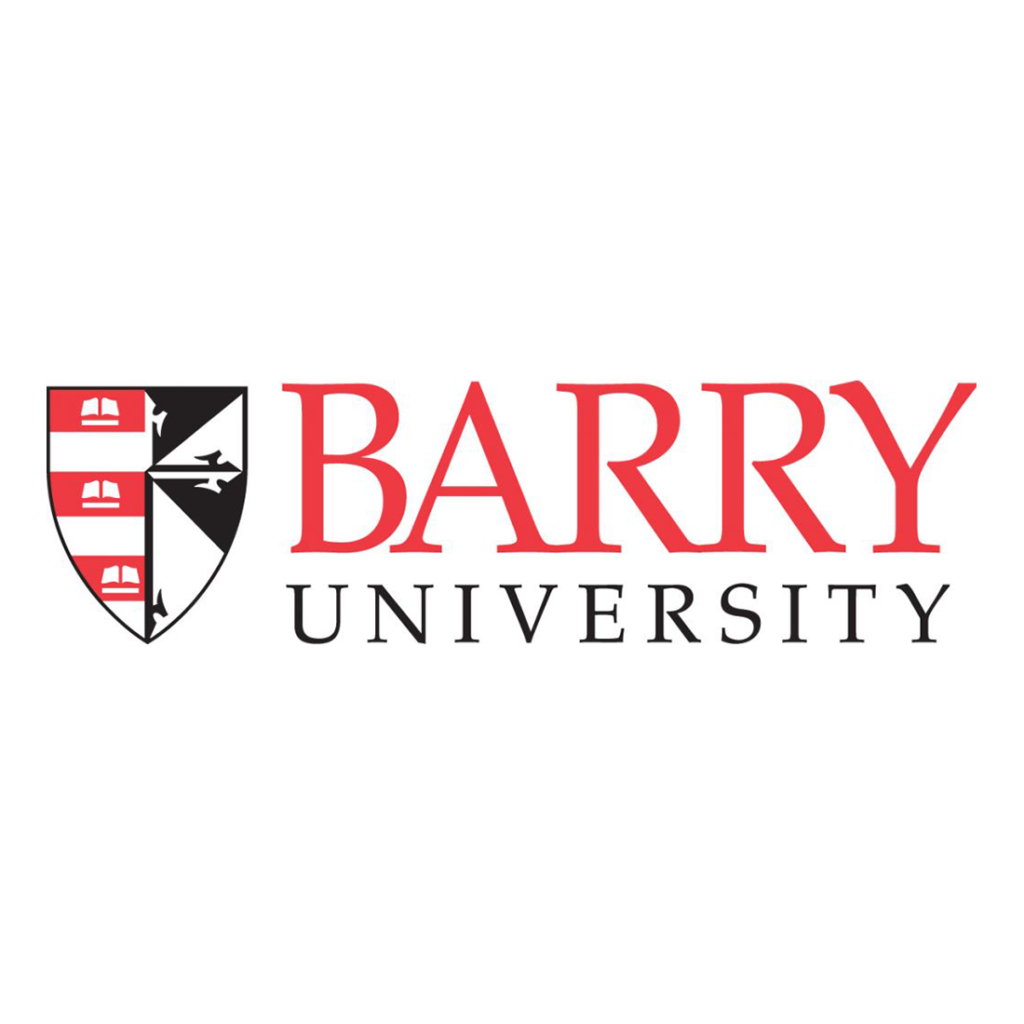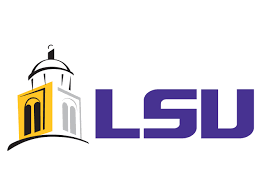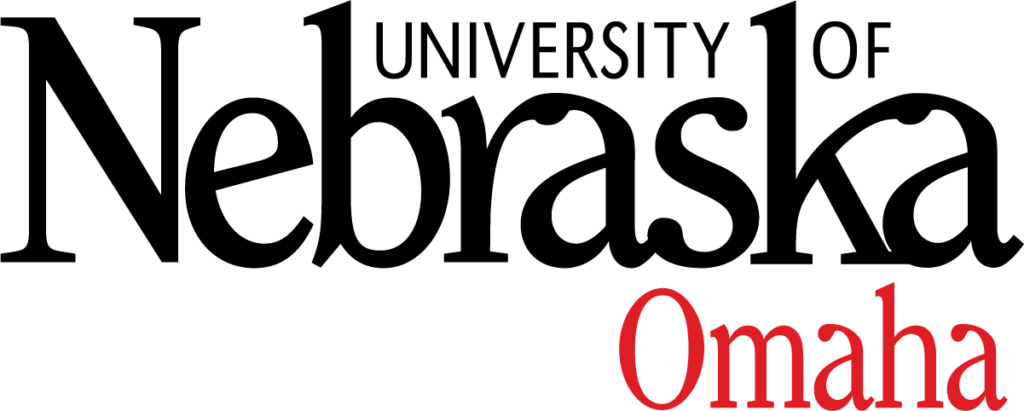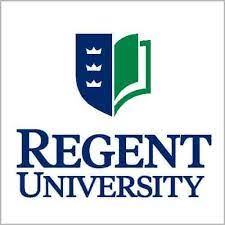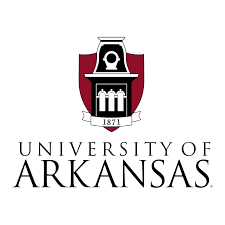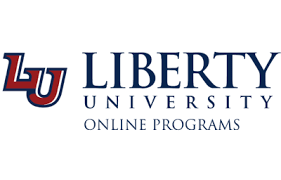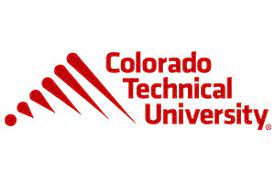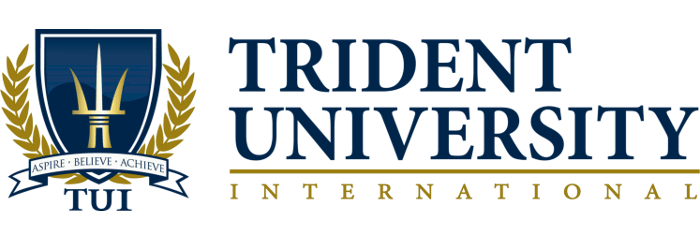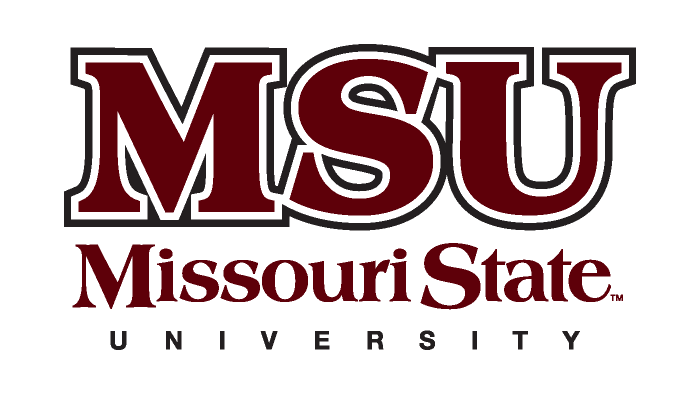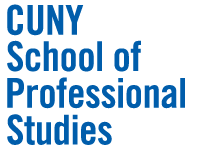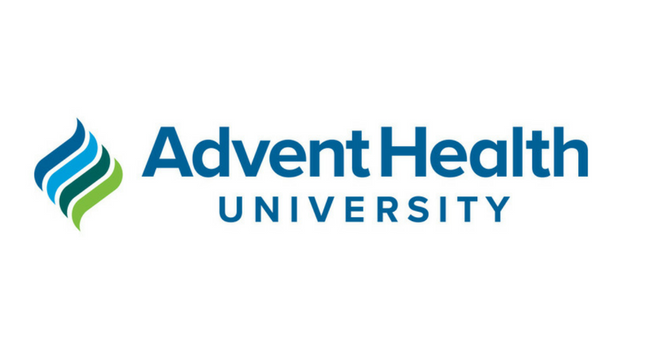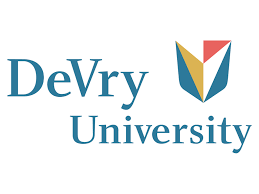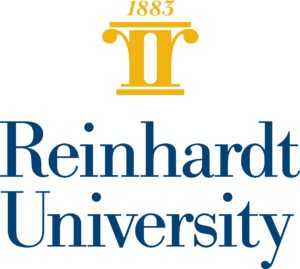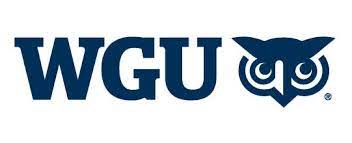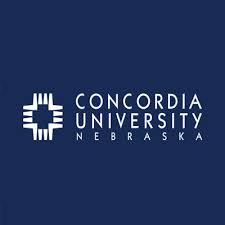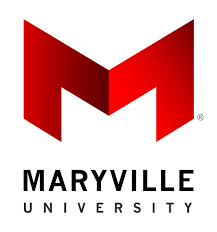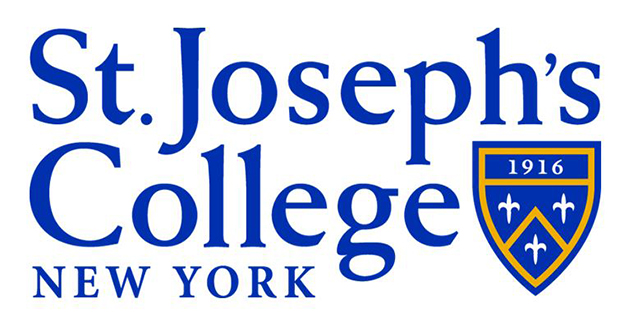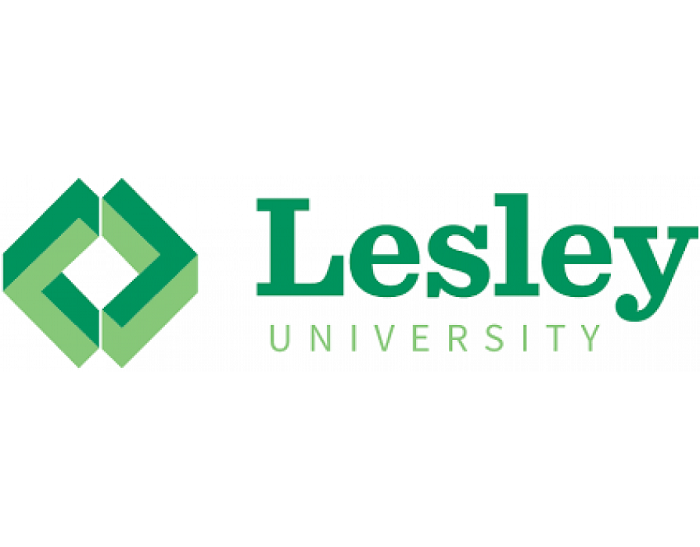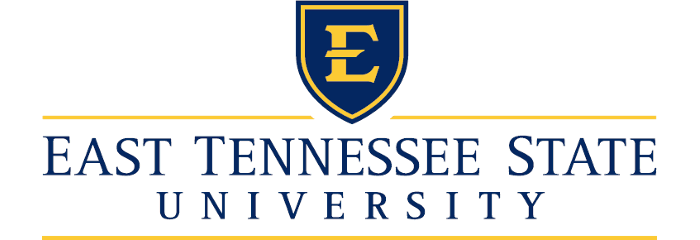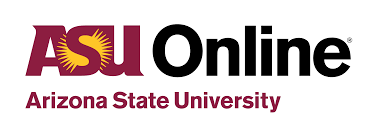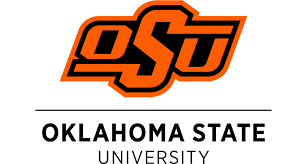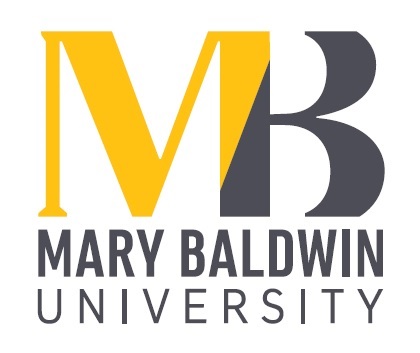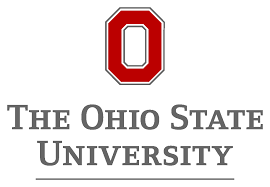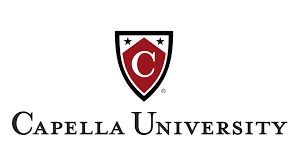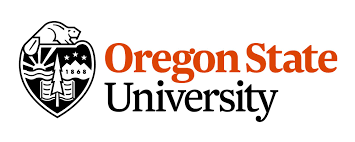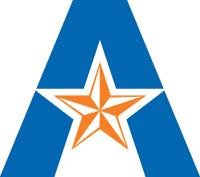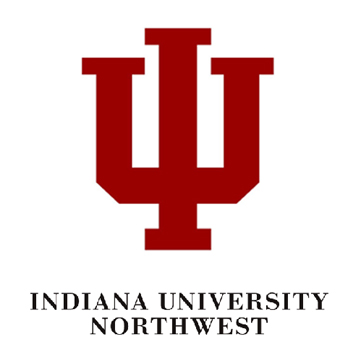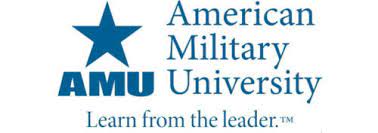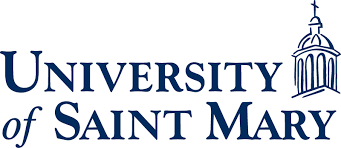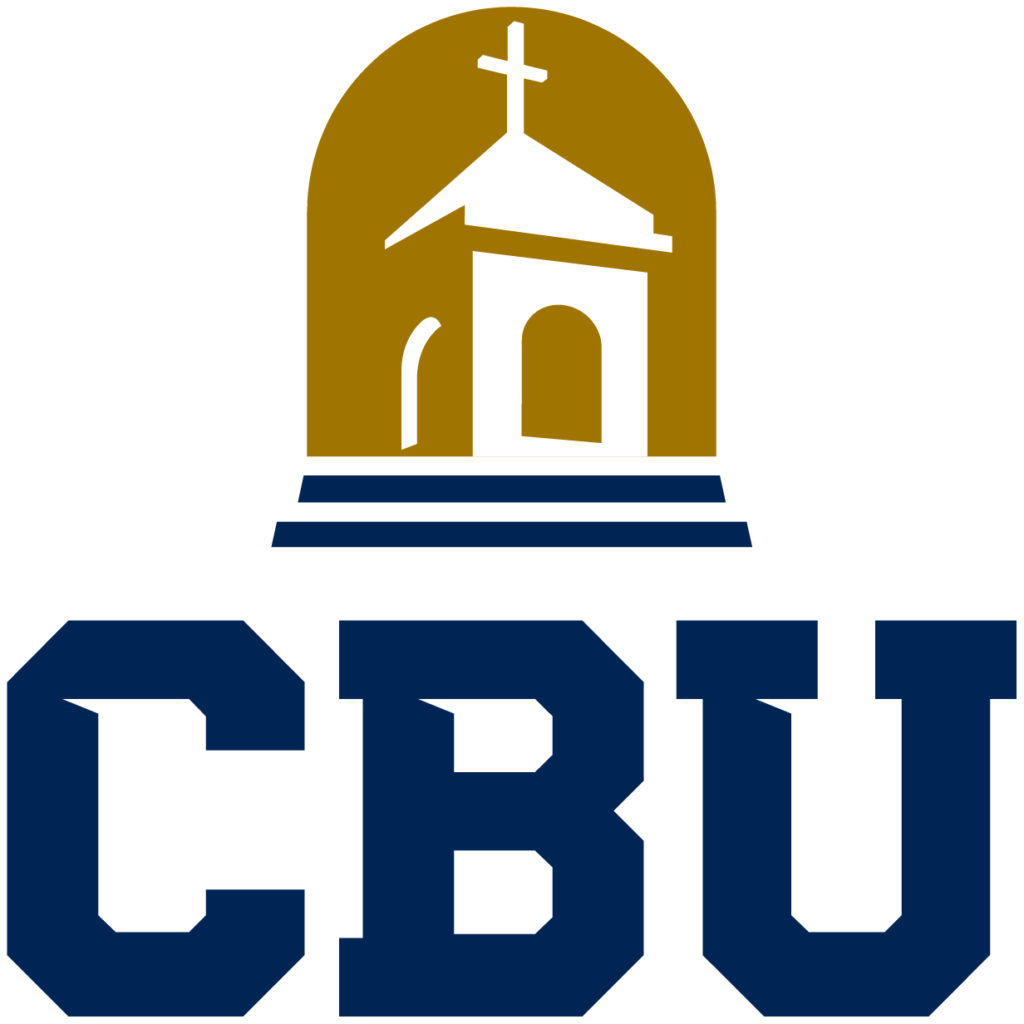Find Your Perfect School
Nursing has long held a reputation for being both a noble vocation and a lucrative career. It has proven to be a recession-proof career. The further upside is, that nurses do not even need to pursue advanced degrees to earn an annual salary of close to six figures.
On the other hand, various degrees and programs in healthcare spawned as the healthcare system evolved. The great thing about degrees like Healthcare Management, Healthcare Administration, and others is that students are taught essential cross-industry, back-office skills like:
- office management,
- accounting,
- project management,
- and strategy.
Students can apply these valuable hard and soft skills to various healthcare settings, like hospitals, centers, clinics, and many others.
Featured Schools

The Bachelor in Nursing and Healthcare Degree and its Real-life Benefits
Healthcare service is no longer limited to a hospital setting, and neither does it only mean service delivery from the physician to the patient. The further evolution of health informatics, health insurances, HMOs, and the locales where healthcare services are brought upon, has added new layers to its highly dynamic industry. Today, to be a highly marketable health professional, one must integrate non-healthcare concepts with clinical health concepts.
The industry has become multi-faceted; therefore, the frontliners should be fully equipped as well. Nursing completion degrees and other healthcare programs, like Healthcare Management, focus on developing managerial and leadership skills among health professionals.
THE BEST BACHELOR’S IN NURSING AND HEALTHCARE ONLINE SCHOOLS
EMERGENCY MANAGEMENT
Emergency Management programs have become in demand these days as force majeure events – from global security threats to natural disasters – have become more prevalent. But unlike other emergency service degrees like EMT or EMS, a degree in Emergency Management is suitable for individuals who have a sound understanding of risks and good foresight, anticipation, planning, and execution skills. Graduates are most likely to handle managerial roles rather than first responder roles.
Some job prospects include risk assessors, intelligence analysts, business continuity managers, incident managers, policymakers, and analysts, security and risk consultants, risk reduction planners and strategists, and many more. Some industry options include government agencies like the Federal Emergency Management Agency (FEMA) or the Department of Homeland Security.
Insurance companies, businesses with a department dedicated to business continuity and resilience management, and security companies are some entry points for BSEM graduates in the private sector. BLS projects a 6% job growth for emergency management roles, especially higher management roles, over the next ten years.
THE 3 BEST SCHOOLS FOR AN ONLINE EMERGENCY MANAGEMENT DEGREE
Franklin University
Online BS. Emergency Management & Homeland Security
: 201 S Grant Ave., Columbus, OH 43215
: (614) 797-4700
This undergraduate program from Franklin University is delivered completely online and requires the completion of 120 credit units for graduation. The courses are flexible and may be completed within four years or less. Transfer credits are accepted and counted towards the degree for faster program completion.
Some of the featured courses of the program include topics on learning spreadsheets, web design and publishing, Public Administration, Government, and Non-Government Budgeting, and Training and Development. Students can then choose between two concentrations:
- Emergency Management and Disaster Response, with courses like Fire and Emergency Services Administration, Disaster Planning and Response, and Critical Incident Management, and,
- Homeland Security, with courses like Criminal Justice Administration, Terrorism and Intelligence Analysis, and Juvenile Corrections.
Both concentrations will require students to take the course on Emergency Management Theory and Practice.
The cost of attendance is $398 per credit unit, regardless of residency. Other fees may apply.
Barry University
Online BS. Emergency Management
: 11300 NE 2nd Avenue, Miami Shores, FL 33161-6695
: 844-890-5951
Barry University offers the FEMA-recognized undergraduate degree in Emergency Management. It focuses on developing management skills to handle business continuity, disasters and calamities, and security risks and threats, whether local, national, or global. It requires the completion of 120 credit units. Admission to the program requires work experience of at least two years, of past or current military service. Applicants must also be aged 21 or older to be accepted into the program.
Students will analyze various disasters and emergencies through the Threat and Hazard Identification and Risk Assessment (THIRA). This is a three-step approach to emergency and risk assessment, planning, and mitigation implemented by FEMA and is part of the curriculum.
Other core courses included in the program are Overview of Disasters and Complex Emergencies, Business Continuity Management, Emergency Management of Homeland Security, International Disaster Management, Hazard Mitigation and Management, and Psychological Issues of Disaster Preparedness and Recovery, among others. Students are also encouraged to undertake a 30-unit but optional experiential learning immersion.
Up to 90 credits can be counted for transfer students, enabling them to finish the program in as little as twelve months. The cost of attendance is $255 per credit unit, regardless of residency. Other fees may apply.
Louisiana State University (LSU)
Online BA. Studies in Disaster Science & Emergency Management
: 340 E. Parker Boulevard, Baton Rouge, LA 70808
: 833-280-5634
This undergraduate EM program from LSU is delivered fully online. It requires the completion of 120 credit units, and up to 90 credits are accepted for transfer. Transfer or new students who have taken the Amazon Web Services (AWS) certification or have had training with the US Navy can take advantage of LSU’s Prior Learning Assessment for credits.
Some of the featured courses of the program include Public Health Emergency Preparedness, Disasters in History, Geographical Information Systems, Technology, and Emergency Management, a three-unit practicum course, and a three-unit senior seminar. Students can also minor in the following complementary areas:
- Business, with courses like Human Behavior in Organizations and IT Productivity,
- Psychology, with courses like Death, Dying and Bereavement Psychology, and Cultural Diversity,
- English, with courses like Mass Media and Public Speaking, and,
- Criminal Justice, with courses like Terrorism and Homeland Security, Constitutional Law, and Criminal Justice.
Free electives in any of the unchosen minor concentrations can also be taken to fulfill program requirements. Course substitutions are also allowed, so long as the department approves them.
The cost of attendance is $291 per credit unit, regardless of residency. Other fees may apply.
GERONTOLOGY
Gerontology is the multidisciplinary study of all the factors affecting and leading to aging. It studies the biological, physiological, psychological, and social aspects of aging, which then help shape its legislative and administrative aspects. It differs from geriatrics, such that geriatrics is a medical sub-specialty specific to the care of older patients.
A typical undergraduate degree in Gerontology requires 120 credit units and is about four years long. Graduates usually gain careers as a social and community worker and or manager (with experience), home care or nursing home worker, or a vocational nurse. Vocational nurses need state licensure to practice.
BLS projects a positive 10-year growth rate in these various roles, from 9% for vocational nurses, 12% to 15% for social and community service workers and managers, to as much as 33% for home care workers due to the aging population. Usual work settings are nursing homes, adult daycare centers, hospitals, private practices, community centers, or private homes.
THE 3 BEST SCHOOLS FOR AN ONLINE GERONTOLOGY DEGREE
University of Maryland – Global Campus
Online BS in Gerontology and Aging Services
: 1616 McCormick Drive, Largo, MD 20774
: 855-655-8682
The University of Maryland offers this undergraduate program in Gerontology in a hybrid format. Most of the courses are delivered online except for the internship requirement, which must be undertaken onsite. The program requires 120 credit units, and up to 90 credits are accepted for transfer.
Some of the featured courses of the program include Issues in Aging, Program Management, Psychological Aspects of Aging, Business of Aging, Culture, and Aging, Programs, Services and Policies, and Long Term Care Administration. Students must complete a Statistics course, which can fulfill the general education core and elective requirements.
Maryland residents’ attendance cost is $306 per credit unit and $499 per credit for non-residents. Other fees may apply.
University of Nebraska – Omaha
Online B.S. in Gerontology – Administration
: 6001 Dodge Street, Omaha, Nebraska 68182
: 402.554.2272
University of Nebraska Omaha (UNO) offers the undergraduate program in Gerontology with three available concentrations – Healthy Aging, Pre-Health, and Administration. Only the Administration specialization is offered online and on-campus, while the other two tracks are only offered on-campus. The program requires 120 credit units.
For the Administration track, students must take courses on Long Term Care Administration, Management and Administration of Aging Programs, and Senior Housing. Students must take additional courses equivalent to nine credit hours to fulfill the concentration core. As for the required Gerontology core features courses like Death and Dying, the Biology/Psychological/Mental/Health aspects of Aging, Community Resources for Older Adults, Programs and Services, and Working with Minority Elderly. All these courses are offered online except for Community Resources, for which the course on Programs and Services can substitute.
Nebraska residents’ attendance cost is $259 per credit unit and $452 per credit unit for non-residents. Other fees may apply.
Regent University
: 1000 Regent University Drive, Virginia Beach, VA 23464
: 800.373.5504 / 757.352.4127
Regent University offers a bachelor’s program in Gerontology that requires the completion of at least 120 credit units. The program is delivered fully online. Being a Christian university, Regent’s BSG program adds a biblical perspective to the multidisciplinary study of aging.
Some of the featured courses of the program include but are not limited to the Biblical Perspective in Aging, Contemporary Issues, Psycho-Social Aspects, Policy Analysis, and Gerontechnology, which studies the assistive technologies available to the aging population.
The cost of attendance is $450 per credit unit for part-time students or students who have enrolled in eleven credit hours or less in a term. Full-time students who enroll in twelve credit units or more in a term are charged $395 per credit unit. Rates are applicable regardless of residency. Other fees may apply, such as the semestral University Services Fee, at $650.
HEALTH EDUCATION
A degree in Health Education can help a graduate land a job in a variety of settings. Typical industries include hospital and community centers, but health educators can also have gainful careers in non-profit and charitable organizations, nursing homes, treatment facilities, penitentiaries, schools, and corporate offices. Corporate wellness programs are a big draw these days for potential recruits and keep employee retention high. Companies devote a team to planning, designing, and executing these programs, where the role of a health educator is vital.
According to the BLS, health educators earn about $60K a year, some even earning as much as $106K annually. The ten-year job projection for this career role is at 7%, mainly driven by the demand in the corporate and non-profit sectors, community settings, and various health facilities, even in public offices and in consultancy and counseling. Aside from their knowledge and expertise, health educators are also expected to be engaging communicators and teachers, whether in an intimate, interpersonal setting or a group or public setting.
THE 3 BEST SCHOOLS FOR AN ONLINE HEALTH EDUCATION DEGREE
University of Arkansas – Little Rock (UALR)
Online B.S. in Health Education and Promotion
: 2801 S. University Avenue, Little Rock, Arkansas 72204
: 501-916-3005
UALR offers an undergraduate program in Health Education and Promotion that requires the completion of 120 credit units. The program is fully delivered online. The curriculum prepares future professionals to sit for the Certified Health Education Specialist (CHES) exam. Students must declare a minor concentration of their choice, equivalent to 18 credit units, to complement the degree.
The curriculum has courses on almost every known health issue to man, like, Smoking Cessation, Stress Management, Substance Abuse & Addiction, Dieting & Weight Control, Family Life & Sex Education, Exercise, Wellness & Lifestyle, Mental Health Education, Personal Health and many others. Some of the notable electives include Advanced First Aid and Teaching Techniques and Methods, to name some.
The cost of attendance is $280 per credit unit, regardless of residency. Other fees may apply.
Walden University
: 100 S Washington Ave., Minneapolis, MN 55401
: 844-487-5394
The undergraduate program in Health Studies at Walden University is completely delivered online. Students can choose between course-based, synchronous learning or the self-paced, asynchronous delivery of classes, which the university calls “Tempo Learning.” The program requires 181 quarter credits (180 for Tempo Learning), with up to 135 credits eligible for transfer.
The program offers four concentrations, namely:
- General Program, where students can take advantage of Walden’s Accelerate Into Master’s (AIM) offering. Students are allowed to take a maximum of 25 credit hours of graduate-level courses within the BSHS program.
- Healthcare Management, with featured courses like Healthcare Finance and Healthcare Informatics,
- Health Promotion and Wellness, with featured courses like Public Health Education and Communication, Nutrition, and Stress Management, and,
- Health Psychology and Behavior, with featured courses like Cross-Cultural Psychology and Social Influences on Behavior.
The cost of attendance for the course-based delivery is $325 per quarter credit, regardless of residency. A $160 technology fee is also billed per term. For Tempo Learning, the cost for a three-month subscription fee is $2,250, also regardless of residency, with a once-per-subscription technology fee of $75.
University of Florida Online
Online B.S. in Health Education – Community Health Promotion
: Gainesville, FL 32611
: 1-855-994-2867
The University of Florida runs a fully online undergraduate program in Health Education with a concentration in Community Health Promotion. It requires 120 credit units. Transfer credits are accepted.
With a focus on community health, some of the featured courses of the program include Personal and Family Health, Community and Environmental Health, Professional Development, HIV/AIDS Education, Nutrition, Patient Health Education, Human Sexuality, and Women’s Health Issues, to name a few.
Florida residents’ attendance cost is $129.18 per credit unit and $552.62 per credit unit for non-residents. Rates include other required fees.
HEALTH INFORMATICS
Health Informatics is the study of the technologies employed to efficiently organize and manage the practice and operational flow and, more importantly, patient health records. This is an industry that requires fundamental skills both in information technology and health science.
Some of the required IT skills for this industry include programming, troubleshooting, and database management. As for the health component, competency in medical coding using the ICD-10 and CPC classifications is essential. Strong familiarity in anatomy, physiology, diseases, medical procedures, pharmacology, and HIPAA compliance is usually required.
The common platform where these two major skillsets intersect is the EMR and EHR systems. IT professionals usually work in the backend, maintaining and improving these platforms. Health information specialists are in the frontend, navigating the systems through medical coding. They convert and transform health records from various enterprises into paperless, organized, and secure data sets.
Health information specialists are expected to earn $45K a year. The growth rate for these roles is estimated to rise by 9% over the next ten years. Those who choose to further their careers as software engineers or testers specific to this industry must take other IT courses and certifications. This increased marketability can give them the potential to earn as much as $124K a year, with a job growth rate of 25% over the next ten years.
THE 3 BEST SCHOOLS FOR AN ONLINE HEALTH INFORMATICS DEGREE
Liberty University Online
Online B.S. in Informatics – Health Informatics
: 1971 University Blvd., Lynchburg, Virginia 24515
: 800-424-9595
Liberty University offers a fully online undergraduate program in Informatics with a concentration in Health Informatics. It can be completed in four years or less and requires 120 credit units, with up to 90 credit units accepted for transfer. Courses run for eight weeks each.
Some of the program’s required courses include Pharmacology, Medical Terminology, Human Anatomy and Physiology, Healthcare Coding and Classification, Healthcare Enterprise Systems, Database Management Systems, Application Programming, Web Architecture & Development, and Information Security name a few. A total of 58 credit hours, or 20 courses comprise the majors, including a course on Financial Accounting.
Tuition fees differ for full-time students, charged $390 per credit unit, and part-time students charged $455 per credit unit. Rates are regardless of the student’s residency status. Other fees may apply.
Oregon Institute of Technology (OIT)
Online B.S. in Health Informatics
: 3201 Campus Drive, Klamath Falls, OR 97601
: 800.422.2017/ 541.885.1000
Oregon Tech’s online undergraduate Health Informatics program is a pioneer among its contemporaries within the state. It requires the completion of 181 quarter credits. Transfer students are welcome to apply.
The curriculum has a major core that emphasizes Business-IT concepts, with courses like Healthcare Marketing, Healthcare Management, Managerial Accounting, Finance, Project Management, Strategic Management, Database Programming, Systems Analysis, Data Mining, Networking, and Business Analysis and Intelligence, to name some. The health core emphasizes community health topics like Population Health, Statistics in Epidemiology, and Medical Sociology. A course on Medical Terminology is required as well.
The cost of attendance is $281 per quarter credit, regardless of residency. Other fees may apply. These include the $65 technology fee, which is billed for every course, and the matriculation fee of $50, which is billed only once, during the student’s very first term at OIT.
Colorado Technical University (CTU)
Online B.S. in Healthcare Management – Health Informatics
: 4435 N Chestnut St, Colorado Springs, Colorado 80907
: 1-855-230-0555
Colorado Technical University offers this online program in Healthcare Management with a concentration in Healthcare Informatics. The program requires 180 quarter credits, with as many as 135 quarter credits accepted for transfer. Prior learning experiences may also count towards the degree through CTU’s Fast Track prior learning assessment program.
There are four required courses for the Health Informatics core, these are:
- Foundations of Data Management in Information Systems,
- Health Analytics and Business Intelligence,
- Database Management Systems for Healthcare, and,
- Security of Electronic Health Information.
The major core emphasizes Management courses such as Fiscal Management, Population Health Management, Human Resources Management, Healthcare Services Administration, Quality Management, and Organizational Behavior. Capstone requirements are required for both the major and concentration cores.
The program can be completed in 15 quarter terms or less, equating to about 3.5 years or less. The cost of attendance is $340 per quarter credit, regardless of residency. A technology fee of $220 is charged per term. Other fees may apply.
HEALTH SCIENCE
A degree in Health Science arms a graduate with knowledge in various disciplines such as Epidemiology, research, community or population health, health education, service delivery, health informatics, and public health administration and policy. This is also a viable completion program for medical auxiliaries with an Associate’s degree in other healthcare adjunctive roles and aspires to have a bachelor’s degree for career growth. It gives them a well-rounded and multidisciplinary education on healthcare that complements their specialized skillsets.
Other career options include advanced studies or venture out in the community or public health work either through service delivery, strategy, quality management, education, or advocacy. They can also do research, public policy analysis, health informatics (with additional training), services administrator for health or treatment facilities, first responder (with additional training), and clinical adjuncts, to name a few. The BLS estimates the median earnings of Health Science Specialists in a public health setting to be $60K a year.
THE 3 BEST SCHOOLS FOR AN ONLINE HEALTH SCIENCE DEGREE
Purdue Global University
: 2550 Northwestern Ave., West Lafayette, IN 47906
: 844-PURDUE-G
At Purdue University’s Global campus, the undergraduate program in Health Science is offered completely online. It requires the completion of 180 quarter credits. Each course runs for ten weeks, and the program starts every month (except for September and October). Transfer students are accepted, especially those from the military (active or veteran), through Purdue’s PME2Degree program.
The curriculum’s major core includes courses such as Epidemiology and Biostatistics, Microbiology, Advanced Health Informatics, Public Health Practices, Environmental Health, and a capstone project to culminate the program.
The cost of attendance is $371 per quarter credit, regardless of residency. Other fees may apply.
University of South Dakota
: 414 E. Clark Street, Vermillion, South Dakota 57069
: 877.269.6837
The University of South Dakota offers the undergraduate program in Health Science in a fully online format. The program offers two tracks, the General concentration, and the Clinical Studies concentration. Both tracks require the completion of 120 credit units.
Some of the featured courses common for both tracks include Anatomy and Physiology, Healthcare Delivery, and Technology in Care Delivery. Students within the Clinical Studies track are required to take additional courses such as Biostatistics, Statistics in Psychological Research, Evidence-based Decision Making, and Human Gross Anatomy.
The cost of attendance is $354.75 per credit unit, regardless of residency. Other fees may apply.
Trident University
: 2200 East Germann Road, Suite 150, Chandler, AZ 85286
: 800-579-3197
Trident University offers this undergraduate program in Health Science fully online. The program offers four concentrations, with all requiring the completion of at least 120 credit units. Trident also offers an accelerated pathway for a dual degree of a bachelor’s and master’s in Health Science. Some courses provide dual credit for this purpose.
The four BSHS concentrations are:
- Public Health, with courses like Public Health Law and Policy, and Community Health Education,
- Environmental and Occupational Health Safety, with courses like Administration, Regulations, and Standards,
- Healthcare Administration, with courses like Healthcare Finance, and Strategic Planning and Sustainability, and,
- Health Education, with courses like Health Promotion, Program Planning, Design and Evaluation, and Program Administration.
The cost of attendance is $415 per credit, regardless of residency. Other fees may apply.
HEALTH SERVICES
A bachelor’s degree in Health Services positions graduates in health service delivery roles and in mid to upper management and administrative roles. This multidisciplinary competency is achieved through courses on topics like:
- healthcare systems and health informatics (for service delivery competency),
- medical terminology, anatomy, and physiology (for basic clinical knowledge),
- biostatistics, research, cultural diversity, and global and community health (for public health competency),
- compliance, regulation, and legalities in healthcare (for healthcare administration competency), and,
- management accounting, healthcare finance, reporting, strategy, and project management (for management skills and competency).
With further training and experience, graduates of this degree could gradually ascend to leadership roles as well. BLS reports that this jump to higher management roles in health service is possible without an MBA, although having one would bring an excellent professional advantage. A Health Services degree is estimated to give its graduates who hold managerial positions a median salary of $104K annually. The need for more Health Service managers is expected to rise within the next ten years at a 32% rate. For entry-level positions, some roles include Health Education specialists and Community Health workers. The ten-year job growth for these roles is estimated at 7%. Median salaries are estimated at $60K annually, which is an above-average figure for entry-level positions.
THE 3 BEST SCHOOLS FOR AN ONLINE HEALTH SERVICES DEGREE
Missouri State University
Online B.S. in Health Services
:901 S. National Ave., Springfield, MO 65897
: 417-836-5000
Missouri State University offers an undergraduate program in Health Services that can be taken fully online. The program offers two tracks, with both requiring the completion of 120 credit units.
The two program tracks are:
- The Clinical Services track is a complete program where only students with an A.A., A.S. or A.A.S. degree will be accepted. Some of the featured courses include Health Informatics, Evidenced-based Healthcare Practice, Health Insurance and Managed Care, Healthcare Quality Management, Healthcare Legal Issues, and Statistics for the Health Professions. Students under this track are expected to complete the program in two years or less.
- The Health Services track is suitable for those who are more inclined in the administrative and management side of healthcare delivery. Students are expected to take almost the same courses as with the CS track, except for the addition of other required courses such as Principles of Management, Public Issues, Cultural Competence in Healthcare, Grant Writing in the Health and Human Services, and Health Literacy. Students under this track are expected to complete the program in four years or less.
The cost of attendance for residents is $607.07 per credit unit and $969.07 per credit unit for non-residents. Other fees are included in the rate.
University of Arizona – Global Campus
Online B.A. – Health and Human Services
: 180 South Arizona Avenue, Suite #301, Chandler, AZ 85225
: (866) 711-1700
The undergraduate Health and Human Services program from the University of Arizona’s Global Campus is delivered in a fully online format. It requires 120 credit units, with up to 90 credits accepted for transfer. Students can focus on completing one course at a time, as each course runs for just five weeks.
The courses are: Intro to Health Informatics, Social Implications of Medical Issues, Community and Public Health, Special Populations, Contemporary Issues, Research Methods, Communication Skills, Cultural Awareness, and a capstone activity to culminate the program. Students must declare a minor, or an emphasis, equivalent to 9 to 12 credit units.
The cost of attendance is $510 per credit unit, regardless of residency. Other fees may apply, such as the technology fee of $115, which is charged on a per-course basis.
CUNY School of Professional Studies
Online B.S. in Health Services Administration
: 119 W 31st St., New York, New York 10001
: (212) 652-CUNY
The CUNY School of Professional Studies (SPS) offers this undergraduate program in Health Services Administration completely online. It requires 120 credit units.
The BSHSA degree also works as a completion program for graduates of these community colleges:
- Guttman Community College’s A.A. in Business Administration program, and
- New York City Technical College’s A.S. in Health Sciences program.
Some of the featured required courses of SPS’ BSHSA program include Intro to Spreadsheets, Accounting Fundamentals, Medical Terminology, Healthcare Delivery Systems, Security of Health Information, Health Information Technology, Management in Healthcare, Project Management, Compliance, Regulatory and Legal Issues in Healthcare, Statistics, Public Health, and Bioethics, to name some.
The cost of attendance for full-time students is $288.75 per credit unit and $305 per credit unit for part-time students (enrolled in 11 credits or less). Rates are regardless of NY residency. Other fees may apply.
HEALTHCARE ADMINISTRATION
A degree in Healthcare Administration takes on a more focused approach to healthcare management and administration – back office if you will. This is its main difference with a Health Science degree (frontline, clinical, service delivery, and research approach) or a Health Services degree (multidisciplinary but mainly service delivery plus management focus).
The usual roles for Healthcare Administration graduates are either administrative, managerial, or leadership. They can handle leadership positions in various healthcare settings like hospitals, health facilities, treatment facilities, nursing homes, outpatient care facilities, community health facilities, clinical facilities, laboratories, and many others.
They can also work for policy research or advocacy either from the private sector, the non-profit or charity, or under the government. They are well-positioned to pursue advanced degrees such as an MBA, MHA, or MPH.
The ten-year job growth for healthcare administrators and managers is projected at a very promising rate of 9% to 32%. The median salary for these career types is estimated to be between $90K to $104K annually, without a master’s degree. Those with advanced degrees are in an advantageous position to command a higher salary.
THE 3 BEST SCHOOLS FOR AN ONLINE HEALTHCARE ADMINISTRATION DEGREE
Advent Health University
Online B.S. in Healthcare Administration
:671 Winyah Drive, Orlando, FL 32803-1226
: (407) 890-8040
Advent Health University offers this undergraduate degree in Healthcare Administration completely online. It requires 120 credit units. Transfer credits also are accepted.
The coursework consists of accounting, economics, finance, organizational behavior and leadership, human resources, healthcare research, big data in healthcare, the essentials of patient insurance, billing and reimbursement, healthcare informatics, healthcare systems, and the legalities of healthcare. A course on Chronic Disease Epidemiology is also included and part of the required core.
The cost of attendance is $560 per credit unit, regardless of residency. Other fees may apply.
DeVry University
Online Bachelor of Healthcare Administration – Healthcare Management
: 1200 E Diehl Rd, Naperville, IL 60563
: 630-428-9086
The undergraduate program in Healthcare Administration offered by DeVry University is delivered both in a fully online format or hybrid format. It also offers a concentration in Healthcare Management. It requires 120 credit units. Transfer students are welcome to apply. With substantial transfer credits, the program can be completed in as little as 20 months.
Students study management and administration essentials like finance, accounting, and management principles. It also includes courses integrating business and technology like data analytics, database management, and business technology software programs.
For the Healthcare Management core, courses include Marketing, Health Information Systems and Networks, Healthcare Data Security, Health Information Financial Management, and Human Resources Management. Most IT courses included in the curriculum have a laboratory component.
The cost of attendance is $514 per credit unit, regardless of residency. Other fees may apply.
Reinhardt University
Online Bachelor of Healthcare Administration
:7300 Reinhardt Circle, Waleska, GA 30183
: +1 770-720-5600
The undergraduate program in Healthcare Administration from Reinhardt University can be taken completely online. It requires 120 credit units. Enrolled full-time students can fast-track the program in as little as 16 months.
The courses include Advanced Medical Terminology for Healthcare Administrators, Healthcare Law, Regulations and Ethics, Strategic Management in Healthcare Organizations, Economics of Healthcare, U.S. Healthcare System, Clinical Data Management, Regulatory Policy, Public Health Administration, and Supply Chain Management for Healthcare. Students can choose between an internship or a capstone seminar to complete their major core requirements.
The cost of attendance for full-time students (enrolled in 12 credits or more) is on a block tuition basis and costs $12,590 per semester. At 18 credits, this comes out to $699.44 per credit or $1049.16 per credit for
12 credit units. Part-time enrollment is billed by the hour at $857 per credit hour. Rates are regardless of residency. Other fees may apply.
HEALTHCARE MANAGEMENT
A degree in Healthcare Management places greater focus on the inner, back-office workings of health service delivery. Compared to a degree in Healthcare Administration, which combines leadership and managerial competencies in healthcare, Healthcare Management programs groom students to understand revenue, financial health, human resources, employee compensation and benefits, management strategies, logistics, and supply chain from the perspective of the healthcare industry.
They also must possess a basic understanding of health information systems, how healthcare insurance works, the U.S. health systems, policies and regulations, and clinical terminologies, such as diseases, clinical procedures, and physiological processes.
Graduates of this program can find themselves in the same work settings as those with a degree in Health Services or Healthcare Administration. They also get to enjoy the same job growth prospects and annual salary potential. The difference lies in the distribution of career roles and their progression.
THE 3 BEST SCHOOLS FOR AN ONLINE HEALTHCARE MANAGEMENT DEGREE
Western Governor’s University
Online B.S. Business Administration – Healthcare Management
:4001 S 700 E #300, Millcreek, UT 84107
: 866.225.5948
Western Governor’s University offers the Healthcare Management concentration as part of its undergraduate Business Administration offering. The mode of delivery is online with competency-based, self-paced courses. It requires 120 credit units. Transfer students are welcome to apply.
Students learn the basics and best practices of business administration and management. They are also required to take courses on Employment Law, Compensation and Benefits, Supply Chain, Quantitative Analysis, and Project Management. As for the Healthcare Management core, some of the featured courses include Technology Applications in Healthcare, Healthcare Operations Management, Financial Management in Healthcare, Delivery Systems, Regulation and Compliance, and Managing Healthcare Data.
Tuition is on a per-term basis, at $3,575. Students can enroll as many courses as they can manage within six months. Also charged on a per-term basis is the fixed rate for learning materials, at $145. Other fees may still apply. Rates are regardless of residency.
Concordia University – Nebraska
Online B.S. in Healthcare Management
: 800 N. Columbia Ave., Seward, Neb. 68434
: 800-535-5494
At Concordia University – Nebraska, the undergraduate degree in Healthcare Management is available fully online. It requires of 120 credit units.
Students take the usual courses expected in such a program, such as Health Information Management, Human Resources Management, and Quality Management. Some standout courses in the program include Gerontology and Mental Health, Aging Policy, Programs and Services, and Disease Management.
This program costs $350 per credit unit, regardless of residency. Other fees may apply.
Maryville University
Online Bachelor’s in Healthcare Management
:650 Maryville University Drive, St. Louis, Missouri 63141
: 1-888-266-0574
Maryville University offers an undergraduate program in Healthcare Management that can be taken fully online. It requires 120 credit units.
Aside from the usual courses, students are also required to take courses on Revenue Cycle Management, Software and Technology in Healthcare, and Medical Law and Risk Management, to name a few. Students can also complete a certificate course in Senior Living Management for greater industry marketability. The certificate program includes courses on Gerontology, Alzheimer’s and Dementia Care, and Long Term Care (LTC) Administration, among others.
Attendance costs $500 per credit unit, regardless of residency. Other fees may apply.
HUMAN SERVICES
A degree in Human Services positions graduates for a vocational career in counseling, psychological, mental, and character rehabilitation, therapy, advisership, abuse, addiction treatment specialists, mental health counselors, and community welfare and social work. A deep understanding of human psychology throughout the lifespan is required and beneficial for a career in Human Services.
Depending on the role, BLS estimates the job growth in this field to be anywhere from 4% (for correctional treatment specialists) to 18% (for abuse, addiction, and mental health counselors). Median salaries in this career field range from $47K (for counselors) to as much as $74K (for Social and Community Service Managers) annually.
THE 3 BEST SCHOOLS FOR AN ONLINE HUMAN SERVICES DEGREE
St. Joseph’s College
:155 W. Roe Blvd., Patchogue, NY 11772
: 631.687.4501
At St. Joseph’s College, the undergraduate program in Human Services is delivered in a hybrid format. The college requires students to take at least 21 credits of major courses in-campus. Other courses may be taken online. The program requires 120 credit units.
The curriculum features two courses, each on Human Services Administration and field immersion. A course on Counseling, Case Management, Life Span Development, and Research is also part of the required core. A capstone project is also required.
The cost of attendance is $655 per credit unit, regardless of residency. Other fees may apply.
Lesley University
: 29 Everett St, Cambridge, MA 02138
: 617.868.9600
Lesley University offers an undergraduate degree in Human Services completely online. It requires the 120 credit units, with up to 90 credits accepted for transfer.
Some featured courses of the program include Micro/Macro Assessment, Psychological Diagnoses, Case Management, Child and Adolescent Health, Race, Class and Gender, and the Sociology of Family, to name a few.
The cost of attendance is $455 per credit unit, regardless of residency. Other fees may apply.
East Tennessee State University
: 1276 Gilbreath Drive, Box 70300, Johnson City, TN 37614-1700
: 855-590-ETSU (3878)
East Tennessee State University offers an undergraduate program in Human Services that is delivered completely online. It requires 120 credit units. The program can be completed anywhere from 18 months to four years.
Aside from the required field immersion and internship experience, students are also required to take the following courses: Family Development, Child Psychology, Counseling Theory and Practice, and Service-Learning in the Community, to name a few.
TN residents’ attendance cost is $422 per credit unit and $483 per credit unit for non-residents. Other fees may apply.
NUTRITIONAL SCIENCE
A degree in Nutritional Sciences can help prepare graduates for the state licensure exam for registered nutritionists and dieticians. Most traditional programs integrate fundamental scientific concepts like chemistry, biochemistry, cellular biology, and microbiology with basic medical concepts like anatomy and physiology. Aside from these, courses on communication, counseling, psychology, epidemiology, public health, and research are also usually part of the required core. These courses help groom students for a career in research, community work, and counseling.
Nutritionists and dietitians are estimated to earn a median pay of $63K a year, according to the most recent BLS statistics. The demand for these roles is also estimated to grow at 11% steadily over the next ten years.
THE 3 BEST SCHOOLS FOR AN ONLINE NUTRITIONAL SCIENCE DEGREE
Arizona State University (ASU) Online
Online B.S. in Food and Nutrition Entrepreneurship
: Tempe, AZ
: 844.353.7953
The undergraduate program in Food and Nutrition Entrepreneurship from ASU Online is delivered via distance learning. The program requires 120 credit units. Courses run for two to five months each. Students can take multiple courses simultaneously to accelerate their progress.
Some of the featured courses include Applied Food Principles, Nutrition Management and Leadership, Human Nutrition, Community Nutrition, Management of Food Service Systems, and Retail Food Service Operations, to name a few.
The program costs $570.75 and $665.50 per credit unit for AZ residents and non-residents, respectively.
University of Alabama
Online B.S. in Food and Nutrition
: Tuscaloosa, AL 35487
: (800) 467-0227
The University of Alabama offers the undergraduate degree in Food and Nutrition fully via online learning. It requires 120 credit units. This UA program is the only one of its kind recognized by the Accredited Council for Education in Nutrition and Dietetics (ACEND).
The curriculum helps students prepare for the Registered Dietitian exams. Some of the major courses students are required to take include Food Science, Nutrition in the Life Cycle, Nutrition Counseling, Education and Biochemistry, and Medical Nutrition Therapy, to name a few. Students are also required to take science courses, including Chemistry, Organic Chemistry, Anatomy and Physiology, and Microbiology.
The cost of attendance is $385 per credit unit, regardless of residency. Other fees may apply.
Oklahoma State University
Online B.S. in Nutritional Sciences
: Stillwater, OK
: (405) 744-1000
Oklahoma State University’s undergraduate program in Nutritional Sciences is delivered fully online via the popular learning management software, Canvas. It requires 120 credit units. The program offers two concentrations, Public Health Nutrition and Public Health Pre-Med.
Some of the featured courses common to both pathways include Human Nutrition and Metabolism, Community Nutrition, Physiology, Public Health, Psychology, and Microbiology with a laboratory component. The Public Health Nutrition track includes courses on Nutritional Epidemiology, Management in Dietetics, and Principles of Epidemiology. The Public Health Pre-Med track includes courses on Biochemistry, Genetics, Anatomy, Organic Chemistry, Physics, and Cell and Molecular Biology.
The cost of attendance is $420.35 per credit unit for OK residents and $937.70 for non-residents. OSU also implements a block tuition system per term, encouraging full-time enrollment of 12 to 18 credit units. Residents pay block tuition of $6,305.25 per term, and non-residents pay $14,065.50 per term. Other fees may apply.
OCCUPATIONAL THERAPY
A master’s degree in Occupational Therapy (MOT) and state licensure are the entry-level requirements to practice the profession. On the other hand, the educational requirement for an Occupational Therapy Assistant (OTA) is only an Associate’s Degree.
Most US schools do not offer a bachelor’s degree in Occupational Therapy, but rather a Pre-Occupational Therapy track or concentration included within a much broader undergraduate offering, usually a bachelor’s degree in Health Science, Psychology, or other related disciplines. Some schools offer an accelerated BS-MS pathway that allows for dual degrees within a single program. Graduates of any bachelor’s degree with a Pre-OT track can work (or continue to work) as OTAs until they earn an MOT degree and pass the licensure exam.
OTAs are estimated to earn $63K a year, which is way above average for associate degree holders. On the other hand, licensed Occupational Therapists earn $93K a year. Although OTAs are projected to have greater job growth over the next ten years, OTs have the number of available jobs in 2022, indicative of high market demand thrice.
THE 3 BEST SCHOOLS FOR AN ONLINE OCCUPATIONAL THERAPY DEGREE
University of Cincinnati – Online
Online B.S. in Health Sciences – Pre-Occupational Therapy
: 57 W Daniels St, Cincinnati, OH 45219
: 833-556-7600
The University of Cincinnati offers a Pre-Occupational Therapy track within its undergraduate Health Sciences offering. This specific track requires the completion of 52 credit units, which is part of the 120-credit requirement of the entire BSHS program.
Some of the featured courses of the track include Musculoskeletal Anatomy, Medical Terminology, Intro to Biomechanics and Kinesiology, Motor Learning and Movement Control, and Intro to Cognitive Psychology.
The cost of attendance for residents is $532 per credit unit and $547 per credit unit for non-residents. Other fees may apply.
Mary Baldwin University
Online B.A. or B.S. in Health Sciences – Pre-Occupational Therapy
: 101 E Frederick Street, Staunton VA 24401
: 540-887-7019
Students enrolled in the Health Sciences undergraduate program of Mary Baldwin University can opt for the Pre-Occupational Therapy Track to prepare them for the MOT program.
A minimum of 27 credit units from the Pre-OT electives must be taken. Among these, some courses are prerequisites to the MOT program. These are Cultural and Medical Anthropology, General Sociology, Lifespan Development, Abnormal Psychology, and General Physics.
Tuition is $460 per credit unit, regardless of residency. Other fees may apply.
Ohio State University
Online B.S. in Health Sciences – Pre-Occupational Therapy
: 453 W. 10th Avenue, Columbus, OH 43210
: 614-292-3980
The undergraduate program in Health Sciences from Ohio State University also offers a Pre-Occupational Therapy Track. The courses required for the MOT program must be taken between the first to third years of study.
These prerequisite courses for the MOT program are Anatomy, Biology, Sociology, Statistics, and Psychology. Students must take the GRE before they begin their senior year in preparation for the MOT program.
Tuition starts at $345.63 per credit unit. Fees vary depending on the campus from which the online courses are enrolled. Other fees may apply.
PUBLIC HEALTH
Some career options for Public Health undergraduates include community health researchers, social work, academe, government work (policy analysis and drafting), occupational safety roles, health service specialists or managers, and advocates or lobbyists. Another option is graduate school, to pursue an MPH or a Master’s in Epidemiology degree.
BLS estimates the median salary for Public Health roles to be around $50K per annum, depending on the role. Job growth is projected to be between 12% to 17% over the next ten years.
THE 3 BEST SCHOOLS FOR AN ONLINE PUBLIC HEALTH DEGREE
Capella University
: 225 South 6th St, Minneapolis, MN 55402
: 1-866-360-7494
The undergraduate Public Health program from Capella University is delivered 100% online. It requires the completion of 180 quarter credits, with up to 135 quarter credits accepted for transfer.
Some of the featured courses include Biostatistics, Epidemiology, Public Health Policy and Management, Environmental Health, and Social and Behavioral Change.
Tuition is $357 to $375 per credit unit, depending on the course. Rates are regardless of residency. Other fees may apply.
Oregon State University
: 4943 The Valley Library, Corvallis, OR 97331
: 800-667-1465 / 541-737-9204
Oregon State University offers a bachelor’s degree in Public Health in a fully online format. It requires the completion of 180 quarter credits.
Students can choose between two specializations: Health Management and Policy or Health Promotion and Health Behavior. Students are also required to complete 360 hours of internship.
Tuition is $331 per credit unit, regardless of residency. Other fees may apply.
The University of Texas – Arlington (UTA)
: 701 S. Nedderman Drive, Arlington, TX 76019
: 817-533-3118 / 866-489-2810
The undergraduate Public Health offering from UTA requires the completion of 120 credit units. Transfer students with substantial credits can complete the program in less than two years. The program is fully delivered online.
Some of the featured courses include Public Health Informatics, Communication, Advocacy and Leadership, and Population Studies, to name some.
Tuition is $315 per credit unit, regardless of residency. Other fees may apply.
RN to BSN (RN Required)
A degree in Nursing leads to a lucrative career in the healthcare profession, with a median pay of $75K per year. The entry-level requirement for this role is an associate’s degree in Nursing, allowing graduates to take the licensure exam for Registered Nurses (RN). This two-year program equips students with the technical skills required for the role.
Those who aspire to complete their studies with a BSN degree can expect courses that focus on administrative, managerial, and leadership skills in healthcare. Courses on public or community health, health informatics, and healthcare policy may also be required.
A BSN program typically sets the path for experienced nurses to eventually hold administrative and managerial positions in hospitals, clinics, treatment facilities, community centers, and other healthcare enterprises. It prepares them academically as well, especially if they intend to advance to an MSN graduate program.
THE 3 BEST SCHOOLS FOR AN ONLINE NURSING COMPLETION DEGREE
Southern New Hampshire University (SNHU)
Online B.S. in Nursing (Completion Degree)
: 2500 North River Road, Manchester, NH 03106
: 603-645-9611
The Nursing completion degree at SNHU requires the completion of 120 credit units. But RNs can earn 25% credits by just presenting their state license. This is on top of their associate’s degree in Nursing, which can qualify as transfer credits. The program is fully delivered online.
Some of the featured courses include Healthcare Ethics and Legalities, Healthcare Management and Finance, and Information Management and Patient Care Technologies.
Tuition is $320 per credit unit, regardless of residency. Other fees may apply.
Indiana University Northwest (IUN)
Online B.S. in Nursing (Completion Degree)
: 3400 Broadway, Gary, IN 46408
: 888-968-7486
The Nursing completion program at IUN can be completed in as little as 12 months. Students can also opt to enroll full-time or part-time. The program can be fully taken online.
Aside from the traditional courses expected from a BSN program, IUN also requires students to take Special Courses on top of the original curriculum. Some of these courses include Science & Tech of Nursing, Mental Health Concepts, and Health Concepts Across the Lifespan.
Tuition is $309.74 per credit unit. Residency rules may apply, as well as other fees.
Morningside University
Online B.S. in Nursing (Completion Degree)
: 1501 Morningside Ave., Sioux City, Iowa 51106
: 712-274-5000
Morningside University’s BSN completion program is delivered in a fully online format. It requires 120 credit units, with up to 94 credits accepted for transfer. Courses run for eight weeks each.
Students enrolled full-time can finish the program in three terms. Part-time students can complete the program in about five terms. Some of the featured courses include Health Care Policy and Organization, Applied Pathophysiology, Research Utilization in Nursing, and Holistic Care.
Tuition is $330 per credit unit, regardless of residency. Other fees may apply.
SPORTS MEDICINE
The degree in Sports Medicine may come in various names, but they all refer to health and wellness in sports activities and athletic pain and injury management. Professionals with a degree in Sports Medicine or the like can work as a sport or recreational trainers, coaches, physiologists, researchers, or join the academe.
Trainers and Physiologists earn close to $51K a year. A rapid rise in job growth can also be expected in this field, with as much as 10% over the next ten years.
THE 3 BEST SCHOOLS FOR AN ONLINE SPORTS MEDICINE DEGREE
American Military University (AMU)
Online B.S. in Sports and Health Sciences
: 111 W. Congress Street, Charles Town, WV 25414
: 877-755-2787
AMU’s undergraduate degree in Sports and Health Sciences requires the completion of 120 credit units. Transfer students can earn up to 90 credits from previously taken courses. The courses are delivered online and run from 8 to 16 weeks each.
Students are required to take courses on Anatomy and Physiology (with lab components), Kinesiology, Sports Psychology, Nutrition, and Sports First Aid, to name a few.
Tuition is $285 per credit unit, regardless of residency. Military students are billed $250 per credit unit. Other fees may apply.
University of Saint Mary (USM)
Online B.S. in Exercise Science
: South 4th St Leavenworth, KS 66048
: 877.307.4915
The Exercise Science undergraduate program from USM can be completed in as little as two years. The courses are fully presented online. Transfer students, as well as those with associate degrees, are welcome to apply.
Some of the featured courses include First Aid and Emergency Procedures, Sports Injuries and Illnesses, Motor Skill Development, and Applied Corrective Exercise, to name a few.
Tuition is $405 per credit hour, regardless of residency. Other fees may apply.
California Baptist University (CBU)
: 10370 Hemet Street, Suite 200, Riverside, California 92503
: 951-343-3900
The bachelor’s program in Kinesiology from CBU is completely delivered online. It requires 120 credit units. CBU has a generous transfer option, which can reduce the required credit units to just 20% or less.
The program courses are Care and Prevention of Athletic Injury, Fitness Assessments and Exercise Prescription, and Principles of Conditioning Athletes.
Tuition is $613 per credit unit, regardless of residency. Other fees may apply.

